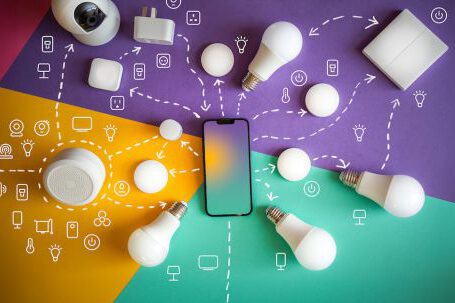The advancements in Artificial Intelligence (AI) are transforming various industries, and healthcare is no exception. AI has the potential to revolutionize healthcare diagnostics, improving accuracy, efficiency, and patient outcomes. By leveraging machine learning algorithms and data analysis, AI systems can analyze vast amounts of medical data and provide valuable insights to healthcare professionals. In this article, we will explore how AI is revolutionizing healthcare diagnostics and the benefits it brings to both patients and healthcare providers.
Enhancing Image Analysis
One area where AI is making significant strides in healthcare diagnostics is image analysis. Radiologists often rely on medical imaging techniques such as X-rays, MRIs, and CT scans to detect and diagnose various medical conditions. However, analyzing these images can be time-consuming and prone to human error. AI-powered algorithms can process and analyze medical images with great precision and speed, assisting radiologists in identifying abnormalities and making accurate diagnoses. By reducing the time needed to interpret images and improving accuracy, AI is enabling healthcare providers to deliver faster and more effective treatments.
Predictive Analytics for Early Detection
Another way AI is revolutionizing healthcare diagnostics is through predictive analytics. By analyzing vast amounts of patient data, AI algorithms can identify patterns and predict the likelihood of developing certain medical conditions. This allows healthcare professionals to intervene early and provide proactive treatments, increasing the chances of successful outcomes. For example, AI can analyze a patient’s medical history, genetic information, lifestyle factors, and environmental data to predict the risk of developing conditions such as heart disease, diabetes, or certain types of cancer. By identifying high-risk individuals, healthcare providers can implement preventive measures and personalized interventions to mitigate the risk.
Improving Clinical Decision Support
AI-powered clinical decision support systems are becoming increasingly common in healthcare diagnostics. These systems use machine learning algorithms to analyze patient data, medical literature, and treatment guidelines to assist healthcare professionals in making informed decisions. For example, when a doctor enters a patient’s symptoms and medical history into an AI system, it can provide a list of possible diagnoses, recommend appropriate tests, and suggest treatment options based on the latest evidence. This not only improves the accuracy of diagnoses but also helps healthcare professionals stay up-to-date with the latest research and guidelines.
Streamlining Electronic Health Records
Electronic Health Records (EHRs) have transformed the way healthcare providers store and access patient information. However, navigating and extracting relevant information from EHRs can be time-consuming for healthcare professionals. AI-powered systems can analyze EHRs and extract valuable insights, such as identifying potential drug interactions, flagging abnormal lab results, or predicting adverse events. By streamlining the process of extracting and analyzing information from EHRs, AI allows healthcare professionals to focus more on patient care and make better-informed decisions.
Empowering Telemedicine
Telemedicine has gained significant popularity in recent years, especially with the COVID-19 pandemic. AI is playing a crucial role in supporting telemedicine by facilitating remote healthcare diagnostics. For example, AI-powered chatbots can collect patient symptoms and provide preliminary diagnoses, helping triage patients and determine the urgency of their condition. Additionally, AI algorithms can analyze patient-generated health data, such as wearable device readings, to monitor chronic conditions remotely and alert healthcare providers of any concerning changes. This allows patients to receive timely care and reduces the burden on healthcare systems.
In conclusion, AI is revolutionizing healthcare diagnostics by enhancing image analysis, enabling predictive analytics, improving clinical decision support, streamlining electronic health records, and empowering telemedicine. These advancements have the potential to improve patient outcomes, increase the efficiency of healthcare delivery, and reduce healthcare costs. As AI continues to evolve and integrate into healthcare systems, it is essential to ensure that ethical considerations, data privacy, and regulatory frameworks are in place to harness its full potential. With continued research and development, AI has the potential to transform healthcare diagnostics and improve the overall quality of patient care.





